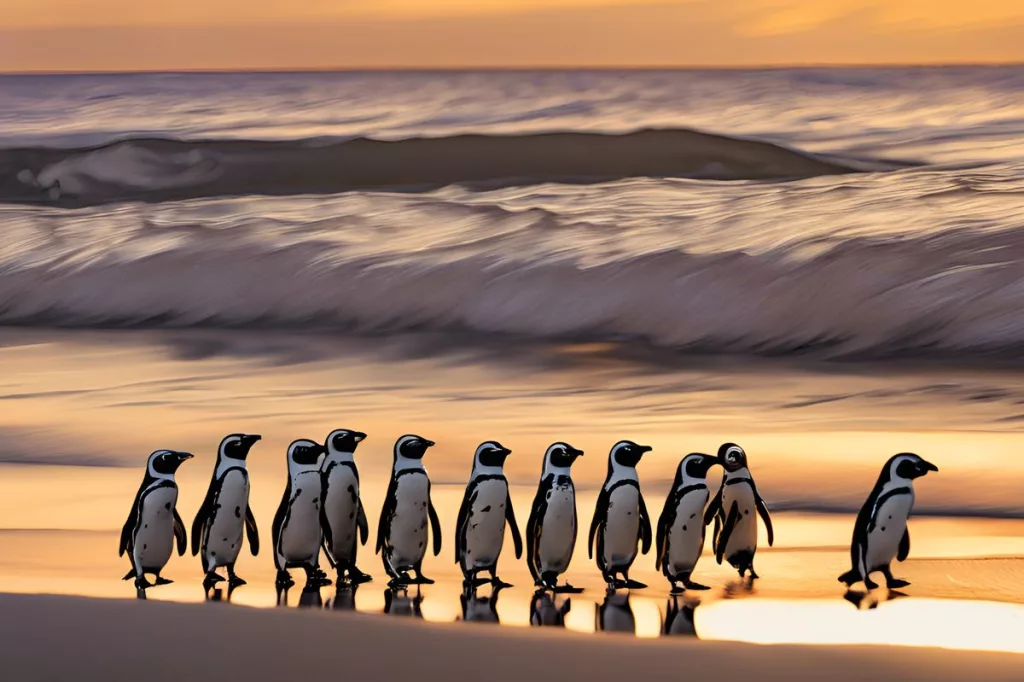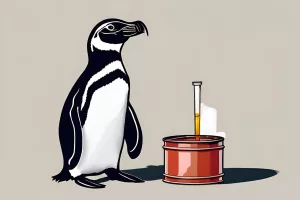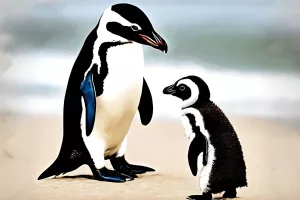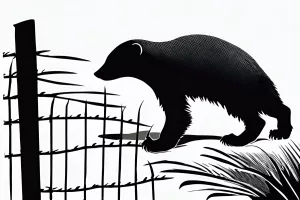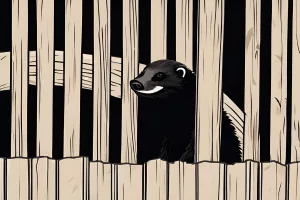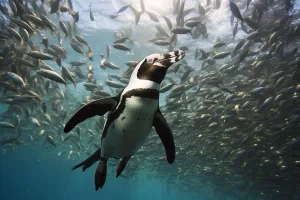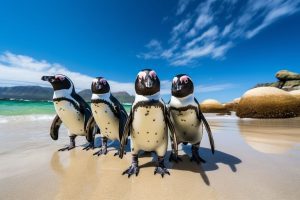African penguins, known for their cute waddles and funny calls, are in big trouble. Their numbers have dropped by 97%, and if we don’t act fast, they could disappear by 2035! To help save these charming birds, you can sign petitions, share their story on social media, teach others about their importance, or volunteer with groups like SANCCOB. Every little bit counts, and your support can make a huge difference in keeping the African penguin waddling along South Africa’s shores for years to come!
The African Penguin population has declined by more than half in the last decade, with only about 31,700 individuals left across their entire habitat. In 2000, an ecological disaster caused by the sinking of a fully loaded MV Treasure orecarrier led to over 40% of the global population of African Penguins being drenched in deadly heavy fuel oil. A paper published in Ostrich: Journal of African Ornithology suggests that the African Penguin meets the criteria to be classified as ‘critically endangered’, and the IUCN will make a final decision on its status on October 22.
SANCCOB is a critical conservation organization in Cape Town that runs the Chick Rearing Unit (CRU) to protect African penguin eggs and chicks. Due to the decline of the African penguin population, the CRU is feeling pressure and urgently needs renovations and expansion to care for more atrisk animals. The new building will allow SANCCOB to accommodate double the number of abandoned and rescued African penguin eggs and chicks and potentially increase release rates. The organization’s efforts are critical to the survival of the threatened African penguin species, which could face extinction by 2035 if the trend continues unchecked.
In the tranquil De Hoop Nature Reserve, conservationists Christina Hagen and Katta Ludynia discovered the lifeless bodies of 11 African penguins, victims of a honey badger attack. Despite this tragedy, the conservation team quickly sought advice and devised new safety measures to protect the penguin colony and prevent future attacks. The African penguin population is critically low, but with the dedication of organizations like CapeNature and BirdLife South Africa, there is hope for the survival of this extraordinary species.
In De Hoop Nature Reserve, a honey badger breached the defense surrounding the African penguin colony and killed 11 penguins. The incident highlights the need for better security measures and a better understanding of landbased predators. Efforts to restore the critically endangered African penguin species continue, with enhancements being made to the colony’s security arrangements. The incident underscores the unpredictable nature of wildlife and the need for continuous adaptation in conservation efforts.
The African Penguin Conservation Effort is a collaboration between the African Penguin and Seabird Sanctuary (APSS) and CapeNature to save and restore African penguin chicks from Dyer Island. Human interference has left the penguins vulnerable to predators and severe weather conditions, paving the way for proactive conservation efforts to avert their extinction. The APSS accepts visitors, monetary donations, and practical donations such as old towels and newspapers to support the recuperative program. Every contribution makes a significant difference in preserving the future of South Africa’s emblematic animals.
A Celebration of Art and Community: Penguin-Themed Pedestrian Crossing in Simon’s Town
The PenguinThemed Pedestrian Crossing in Simon’s Town, South Africa is a lively public art display featuring the town’s beloved African penguins. Created by local artist Jacques Coetzer, the installation reflects the diverse interests of the community, including neighborhood associations, penguin conservation groups, and the City’s Urban Mobility Directorate. The crosswalk brings charm and warmth to the urban scenery of the town and serves as a constant reminder of the local fauna’s importance and the necessity of conservation efforts. It embodies the unique cultural heritage of the area and symbolizes the power of art and community collaboration.
African penguins are on the brink of extinction, and if current trends continue, more than 500 breeding pairs could disappear annually over the next decade. This decline has already caused the number of breeding pairs to plummet to under 11,000 since records began in 1979. By 2035, this could spell disaster for the species, wiping them out from their natural habitat.

